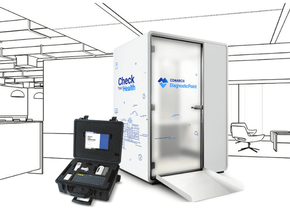Insurers must become customer focused in modern ecosystems

Digital technology is enabling an unprecedented level of scalability for insurance globally, with the market now able to form ‘borderless’ alliances.
By 2025, McKinsey & Co predicts, ecosystems will account for 30% of global revenues, with perhaps 12 distinct examples generating US$60trn.
Yet there is a substantial danger that, as modern ecosystems become more advanced, insurance companies risk being disrupted and relegated to minor components in the value chain.
Phil Zeidler, CEO of DeadHappy, offered his comments to InsurTech Digital and summarised his opinion on why this might be.
“Fundamentally, general insurers are product focused and not customer focused,” he explains. “They think about risk and loss ratios, not customer experience aspects such as ease of access.
“Often they’re removed from the distribution of their product: they outsource to brokers, aggregators, etc, and so they don’t understand their customer or where they’re being marginalised. If you don’t understand your customers, you don’t understand the market.”
The importance of data
The challenges of modern insurance ecosystems are, in many ways, similar to those of other digitally inflected industries - i.e. they pertain to customer data utilisation.
Gathering information in an inherently data rich environment such as insurance shouldn’t be difficult, however possessing the innovative mindset necessary to properly unlock the value within appears to be more taxing.
“Insurers have got to understand their customer and commit to understanding both the data they have and how they can enhance it through additional sources. They also have to understand consumers’ buying preferences and how they should redesign products to enable them,” states Zeidler.
Innovation is on a timer
As we found in our November 2020 edition, one of the primary criticisms of insurance from thought leaders is its long-standing resistance to change and slow reflexes.
Asked if there is a ‘ticking clock’ for insurers to reassert their value in evolving ecosystems, Zeidler says, “Yes, it’s happening right now, all around, and insurers have been very slow to react. They’re continuing to drive their businesses ‘through the rear view mirror’ rather than looking forward.”
Overcoming a deep cultural aversion to risk and innovation will be crucial in this climate, he adds, if insurers wish to avoid facing irrelevancy. Instead, customers need to feel connected to their providers and not simply regard insurance as a passive and product-centric industry.






